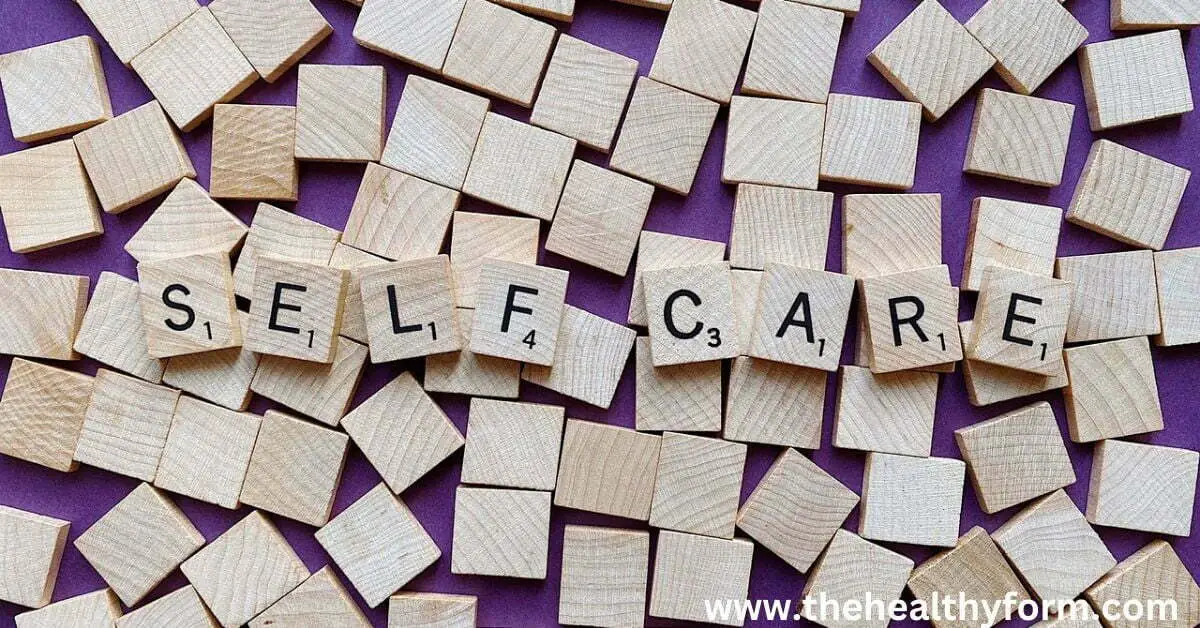Coping with the Physical and Emotional Challenges of Chronic Illness
Discover effective strategies for coping with chronic illness’s physical and emotional challenges. Learn how to manage symptoms, maintain emotional well-being, and improve quality of life with support and resources. Chronic illness can bring various physical challenges, from persistent pain and fatigue to mobility and difficulty with daily activities. Finding strategies to help you manage these challenges and maintain a good quality of life is important. Some strategies for coping with the physical challenges of chronic illness include:

Managing symptoms through treatments and self-care
This may involve taking medications as prescribed, following a healthy lifestyle, and seeking complementary treatments such as acupuncture or massage therapy that may provide additional relief.
Staying as active as possible
Finding ways to stay physically active is important despite limitations. This may involve finding low-impact exercises suitable for your condition, such as swimming or yoga, or working with a physical therapist to develop a safe and effective exercise plan.
Using assistive devices and technologies: Many devices and technologies are available to help individuals with chronic illnesses manage physical challenges. This may include mobility aids such as walkers or wheelchairs or assistive technologies such as voice-activated devices or adaptive software.
Seeking support from healthcare professionals and caregivers
Working with a healthcare team that understands your needs and can provide support and guidance can be crucial in managing the physical challenges of chronic illness. Caregivers, whether family members or paid professionals, can provide valuable assistance with transportation, meal preparation, and personal care.
How can I manage the emotional impact of chronic illness?
Chronic illness can bring many emotional challenges, including depression, anxiety, and feelings of isolation. Finding ways to manage these emotions and maintain good mental health is important. Some strategies for managing the emotional impact of chronic illness include:
- Finding support from loved ones: Building a strong support network of loved ones who can provide emotional support and understanding can be crucial in managing the emotional challenges of chronic illness. Communicating openly with loved ones about your needs and seeking support when needed is important.
- Seeking professional help: If you are struggling with persistent emotional challenges, seeking guidance from a mental health professional such as a therapist or counselor may be helpful. These professionals can provide support and guidance in managing emotions and finding ways to cope with the challenges of chronic illness.
- Practicing self-care: Taking care of yourself physically and emotionally is important for managing the impact of chronic illness. This may involve finding ways to relax and reduce stress, such as meditation, yoga, or other relaxation techniques. It may also involve finding activities that bring joy and purpose, such as hobbies or volunteering.
- Finding support from others with chronic illness: Joining a support group or online forum for individuals with chronic illness can provide a sense of community and a place to share experiences and find support from others who understand your challenges.

Self-Care Practices for Managing Chronic Illness
Self-care is the practice of taking care of your physical and emotional well-being, an important aspect of managing the challenges of chronic illness. Some self-care practices that can be helpful include:
Getting enough rest
Getting enough sleep is important to help manage chronic illness’s physical and emotional demands. Establishing a regular sleep schedule, creating a relaxing bedtime routine, and avoiding screens before bedtime can all help improve sleep quality.
Eating a healthy diet
A healthy diet can provide the nutrients and energy your body needs to manage chronic illness’s physical and emotional challenges. This may involve focusing on whole, nutrient-dense foods and limiting processed or sugary foods. It may also be helpful to work with a nutritionist or registered dietitian to develop a meal plan that meets your specific needs.
Exercising regularly
Physical activity can help improve physical and mental well-being, even if you have limitations. Finding activities suitable for your condition and working with a healthcare professional to develop a safe and effective exercise plan is important.
Practicing relaxation techniques
Relaxation techniques such as meditation, yoga, or deep breathing can help manage stress and improve overall well-being. It is important to find relaxation techniques that work for you and to make time for relaxation in your daily routine.
Taking breaks and setting limits
It is important to pace yourself and to set limits on your activities to avoid overwhelming yourself. Taking breaks and finding time to rest can help you manage chronic illness’s physical and emotional demands.

Eating a healthy diet
A healthy diet can provide the nutrients your body needs to manage chronic illness’s physical and emotional demands. Working with a nutritionist to develop the right plan for your specific needs may be helpful.
Staying hydrated
Proper hydration is crucial for the overall health of individuals with chronic illnesses. It is essential to drink enough fluids to stay hydrated and be mindful of the types of fluids you consume, as some may not be suitable for specific conditions.
Engaging in activities you enjoy
It is important to find activities that bring joy and fulfillment and make time for them despite chronic illness demands. This may involve hobbies, creative pursuits, or social activities.
Finding ways to relax and reduce stress: Chronic illness can be a source of stress, and it is important to find ways to manage it. This may involve practicing relaxation techniques such as meditation or yoga or finding activities that provide a sense of calm and relaxation.
Finding Purpose and Meaning in Life with Chronic Illness
Living with a chronic illness can present many challenges that may make finding purpose and meaning in life difficult. However, some strategies can help individuals cope and find fulfillment despite their illness. Below are some headings that explain how to find purpose and meaning in life with chronic illness:
Accepting the Challenges of Chronic Illness
It can be challenging to come to terms with a chronic illness and the limitations it may bring. Acceptance can help individuals move forward and focus on what is within their control.
Identifying Personal Values and Priorities
Reflecting on personal values and priorities can help individuals gain clarity on what is most important to them and guide them in deciding how to live their lives despite their illnesses.
Setting Realistic Goals and Expectations
Setting realistic goals and expectations can help individuals feel a sense of accomplishment and purpose while avoiding feelings of disappointment or failure.
Cultivating Gratitude and a Positive Mindset
Cultivating gratitude and a positive mindset can help individuals shift their focus from the challenges of their illness to the positive aspects of their life.
Seeking Support and Connection
Connecting with others who have similar experiences or seeking support from loved ones or professionals can help individuals feel less alone and more empowered to face the challenges of their illness.
Pursuing Personal Interests and Hobbies
Pursuing personal interests and hobbies can help individuals find joy and fulfillment outside their illness and provide a sense of purpose and identity.
Helping Others and Giving Back
Helping others and giving back can provide a sense of meaning and purpose and contribute to a greater sense of community and connection. This can be done in various ways, such as volunteering or supporting others with similar experiences.
Identifying your values and priorities
Reflecting on what is most important can help you find direction and purpose. This may involve identifying your values, such as relationships, personal growth, or helping others, and finding ways to align your actions.
Setting goals
Having specific goals to work towards can provide a sense of purpose and motivation. Setting realistic goals that consider your limitations and celebrating progress and accomplishments is important.
Giving back
Finding ways to impact the world positively can provide a sense of purpose and meaning. This may involve volunteering, donating to causes you care about, or advocating for important issues.
Finding joy in the present moment:
Getting caught up in the challenges and difficulties of chronic illness can be easy, but it is important to find joy and gratitude in the present moment. This may involve finding small pleasures in daily life, such as spending time with loved ones, engaging in hobbies, or practicing mindfulness techniques to help you focus on the present moment.
FAQ about Coping with the Physical and Emotional Challenges
Here are some of the most common questions people have about coping with the physical and emotional challenges are:
What are some physical challenges people face when coping with emotional distress?
Physical challenges can vary depending on the individual and their emotional state. Some common physical symptoms can include headaches, fatigue, muscle tension, digestive issues, and sleep disturbances.
How can I cope with physical symptoms when experiencing emotional distress?
It is important to practice self-care, such as maintaining a healthy diet, getting enough sleep, and engaging in regular exercise or physical activity. Mind-body techniques, such as meditation, yoga, or deep breathing, can also help to reduce physical symptoms and promote relaxation.
What are some emotional challenges that can arise when coping with difficult situations?
Emotional challenges can include sadness, anger, anxiety, depression, or isolation. It is normal to experience a range of emotions when dealing with difficult situations.
How can I cope with emotional challenges when dealing with difficult situations?
Acknowledging and accepting your emotions while seeking support from friends, family, or a mental health professional is important. Engaging in self-care activities, such as practicing mindfulness or creative expression, can also help to manage emotional distress.
Conclusion
Living with chronic illness can be a challenging and overwhelming experience. Still, finding ways to cope with physical and emotional challenges and maintain a good quality of life is possible. It is important to find strategies that work for you, such as managing symptoms, staying active and engaged, and finding support from loved ones and healthcare professionals. It is also crucial to prioritize self-care and to find purpose and meaning in life despite the challenges of chronic illness.



